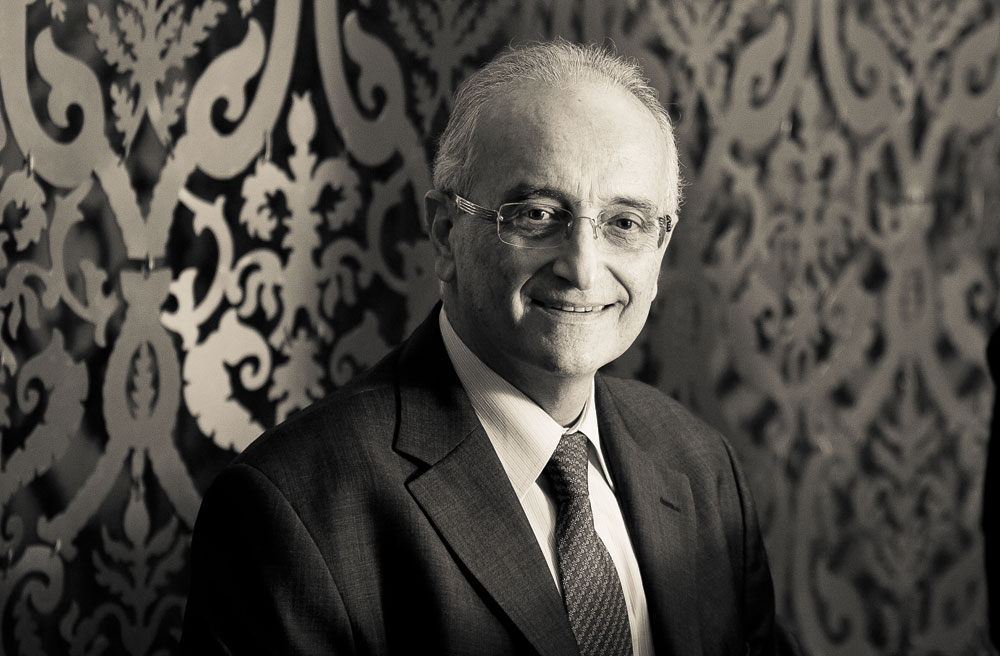While Arab countries have recently upheld their warnings against travel to Lebanon, there is still hope that friendlier political winds from the Gulf will allow for a good summer for tourism. Still, the past year has shown that resistance to business crises is a must for a Lebanese hospitality venture. As hotels emerge from this survival test, Executive sits down with Mazen Salha, chairman of Societe des Grand Hotels Du Liban, which owns the Phoenicia and Le Vendome hotels, to discuss the realities, challenges and enduring qualities of the business.
Given your extensive experience in the hospitality sector in Lebanon, what are your thoughts on the climate that is currently dominating the hospitality sector in Lebanon? Is it the worst we have seen?
It has been a rollercoaster ride ever since we have opened; we’ve become used to it and we adjust our operations accordingly. This time, however, it really was a long stretch since it started in April 2012 and all through the summer until now. With this long stretch, we had to take a lot of measures to survive.
Related article: Phoenicia's empire on hold
Hopefully we are getting over it and we are starting to see some [Gulf] Arabs coming back. Bookings for June are starting to look good, though we don’t want to be over-optimistic. There will be a natural drop with Ramadan but the good thing is that Eid El Fitr is at the beginning of August so we will see another summer season then, if things remain as they are.
Why was the impact of Gulf countries’ advisories against travel to Lebanon so severe?
Regardless of what anyone may say, this is predominantly an Arab market, and mainly a Saudi one. I asked our operations manager to look back at the last three months to see which nationalities make up the majority of our clients, and the Saudis are still the largest group, [even with] the ban and despite everything. It is really a huge market, bigger than all the other Gulf states together, and their decision to stay away from Lebanon hurt us a lot as a country.
While executing investments to improve the SGHL properties a couple of years ago, you have also spent money to exhibit a collection of international art. Was that a financial investment?
We, my wife and I, wanted to give the Phoenicia a cultural element because we are interested in art. We have a small, nice collection. The most valuable piece of art we have in the Phoenicia is the one above the staircase made by Richard Long but it is painted on the wall and so, as an investment, it loses its value. The other pieces we house have appreciated in value.
How do you view the level of the human capital and the quality of training provided in Lebanon for those who want to join the hotel industry?
There is a lot of interest in joining this industry but the problem is that everyone wants to be a manager. They spend a year in a hotel and then expect to move to a higher level, which is not always feasible, and so they move somewhere else; some succeed and advance in their career but others don’t.
On the training and production level, we are doing well but could be doing better. There is a limited capacity for hotel management training in Lebanon. Only La Sagesse University has an internationally accredited hotel management school but they can only take 50 students, and I am currently working with them to increase this number to 150.
You represent the second generation in owning the Phoenicia. Is the succession clear? Will the next generation of Salhas be involved in the business?
We really don’t know about the succession at this point. My eldest son has chosen to live in England where he heads his own hotel consultancy business. My brother’s daughter is very much involved in the hotel and is a high-ranking executive but we don’t know what her future plans are. My daughter was in the business and doing very well but since she got married she is now more a homemaker than a hotelier.
Isn’t it very similar to take care of guests as a hotelier when compared with fulfilling the role of a homemaker and full-time mom?
Believe me, it is not. This is a very hard business; people don’t realize how much time you have to invest in it and how stressful it is. You get all sorts of complaints and all sorts of issues and all the team puts in long hours. You really have to devote yourself to it.


![Wednesday[33]](https://www.executive-magazine.com/wp-content/uploads/2014/01/Wednesday33.jpg)






![Tuesday[36]](https://www.executive-magazine.com/wp-content/uploads/2014/01/Tuesday36.jpg)

![Monday[36]](https://www.executive-magazine.com/wp-content/uploads/2014/01/Monday36.jpg)
